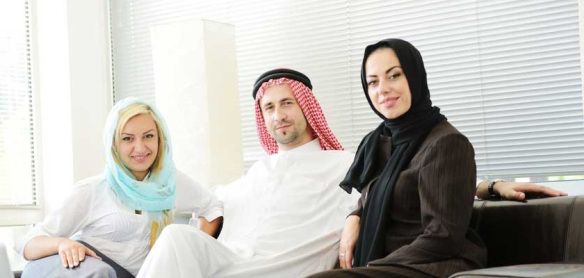
Part 2
If a woman gets involved with a married, she should maintain her dignity and self- worth by informing him that she will only accept his offer of marriage once she has spoken to his wife, writes Dr. Quraysha Ismail Sooliman.
Now consider the claim by the man that he loves both women, without realising the impact of that statement on the mental and psychological well-being of the spouse who is “loved less.” The Quran addresses this issue with the reality of the occurrence, and implicitly states that it is not possible to be just with regards affection – to both. Sura Nisa verse 129 states, “And you will never be able to be equal [in feeling] between wives, even if you should strive [to do so]. So do not incline completely [toward one] and leave another hanging…” Knowing full well that one (of the females) would be in a relationship where there would not be equality in emotion and love, it should be that women consider the impact of this. This requires one to ask “How would I feel if I was the one he was less inclined to because of the presence of another woman in the relationship?”
So how should women in this situation position themselves? This relates to one’s character, reliance on Allah and sense of self-worth and self-respect. The ethical stance implies a respect for the man’s wife; because the situation demands that she be treated the same way in which the girlfriend or new to-be-marriage partner would want to be treated, achieved through transparency, openness, honesty and mature communication. Marriage is after all a “mithaq ghaliza” – a strong contract. Hence secrecy of association and flirtation, intimacy with a married man that generates betrayal, emotional pain, psychological harm and stress is not ethical. It is impossible here to recount the harm and trauma to the children when the justifications occur outside Islamic ethics and morality. Hence, if a woman gets involved with a married man by falling for his lines, she should maintain her dignity and self- worth by informing him that she will only accept his offer of marriage once she has spoken to his wife.
Marriage, a foundational institution in Islam should be built on love, trust, transparency, honesty, loyalty and commitment. Not on lies as a relationship built on lies cannot sustain itself. As for the woman’s claim that he ‘pursued me’ the simple response to that is, ‘call his wife and tell her that he is making a nuisance of himself.’ Be respectful of a union that is a strong covenant in Allah’s eyes even if either of the spouses are not. It’s how we behave that matters. Let’s not be guilty of a transgression, let’s not be desperate for another woman’s husband. There are many unmarried men, and if marriage is what one desires, we must ask Allah for a spouse, not take from another woman’s amaanah. I would also like to query the claim that there will be more women than men used as a justification for polygamy. In the current context, there are plenty of unmarried men looking for spouses, so first, marry one of these. Secondly, the hadith about there being more women than men is about the signs of qiyaamah, and is not a hadith that was offered to justify or promote polygamy. The blessed messenger did not use this numerical distribution in any conversation or context about taking more than one wife!
Yes, after the many wars and battles fought at the time of the prophet SAW, there were widows and orphans due to the deaths of the men fighting in the path of Islam. It was encouraged to marry the widows and the orphans. But this was contextually specific and not related to men “falling in love” with (unmarried/virgin) women. The men were encouraged specifically to marry the orphans and the widows. It was about preserving the social justice/dynamic of the newly formed Islamic state and its inhabitants. So I am curious as to why scholars would use this hadith (of there being more women than men) for a very different context – where there are still many unmarried men? And where men who take second wives claim to have fallen in love with the woman and she is not a widow?
Understanding the family
The husband and wife constitute the first unit known as a family, if the family is sound, then society is sound. The cohesiveness in a society is closely associated with the cohesiveness in the family unit. Significantly, 4: 134, the Chapter on the Woman has the injunction which states: ‘Believers! Be upholders of justice, and bearers of witness to truth for the sake of Allah, even though it may either be against yourselves or against your parents and kinsmen, or the rich or the poor: for Allah is more concerned with their well-being than you are. Do not, then, follow your own desires lest you keep away from justice. If you twist or turn away from (the truth), know that Allah is well aware of all that you do’.
Hence the notion of justice is the key ethical value that Allah (SWT) mentions when granting the permissibility for taking more than one wife. Such an act can be entertained if one is capable of being just. The very fact that in most instances today the pursuit of the second wife is an extension of unjust and in many instances unlawful conduct, should highlight the reality that taking another would be a gross violation of Allah’s absolute address and command, “If you fear you cannot do justice, then marry one (wahidatan).”[1] Furthermore, the verses on polygamy should be read together, i.e. verses 1-3 and 126-130. The Quran’s emphasis is not on number but on justice.
[1] Sura Nisa (4:3) “If you fear you might fail to give orphan women their ˹due˺ rights ˹if you were to marry them˺, then marry other women of your choice—two, three, or four. But if you are afraid you will fail to maintain justice, then ˹content yourselves with˺ one or those ˹bondwomen˺ in your possession. This way you are less likely to commit injustice.”
*Dr Quraysha Ismail Sooliman is a postdoctoral Fellow UP Humanities/Mellon Foundation Public Intellectual Project.


